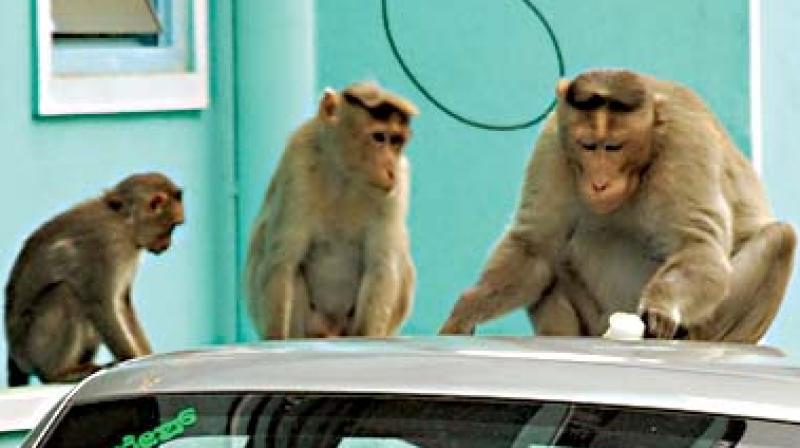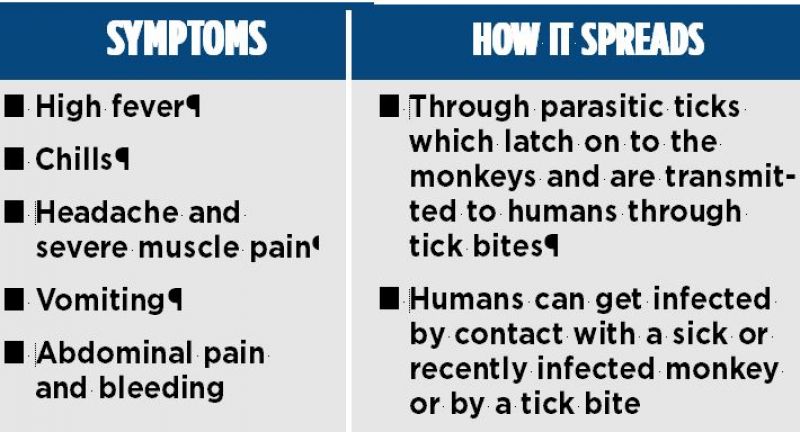Monkey fever sparks panic among Bengalureans

Bengaluru: The reports of deaths due to Kyasanur Forest Disease (KFD) or monkey fever in various parts of the state has sparked panic in Bengaluru, espectially in areas frequented by monkeys. The disease has been reported in Shivamogga, Uttara Kannada, Dakshina Kannada, Udupi, and Chikkamagaluru districts.

Though no cases have been reported in the city so far, KFD has created anxiety among people and experts have called for caution. So far, Shivamogga district has been the worst affected with six deaths and 58 cases being reported.
Bindu D.B., a resident of Malleshwaram said, “Since we read and hear a lot about the disease, we are bound to feel anxious. Moreoever there are monkeys in our area and that adds to our anxiety.”
The infection spreads through parasitic ticks which latch on to the monkeys and are transmitted to humans through tick bites. KFD starts with a high fever, chills, and a headache followed by severe muscle pain, vomiting, abdominal pain and bleeding over next 3 to 4 days.
Dr S. Sajjan Shetty, Joint Director, communicable disease, department of health and family welfare said, “We have taken sufficient preventive measures, including vaccination. The team of doctors and other paramedics have been deputed in the affected areas to identify people affected by monkey fever.”
He, however, said people in the city need not worry about the disease. “Door-to-door awareness campaign is being conducted in the affected areas. Just to be cautious, stay away from monkeys as much as possible,” Dr Shetty added.
Monkeys and rodents are frequently affected animals. “Humans can get infected by contact with a sick or recently infected monkey or by a tick bite. The ticks act as vectors after the blood meals (dry, inert powder made from blood) from infected animals. Person to person transmission has not been reported. Domestic animals such as goats, cows may become infected with KFD but play a limited role in the transmission of infection,” said Dr Pratik Patil, Consultant, Infectious Diseases at Fortis Hospital.
There is no specific antiviral medication and treatment includes supportive care, informed Dr Patil. “It can be prevented by avoiding close contact with the sick or dead monkey (keep a distance of more than 50 metres). People living in the forest or visiting forest areas should strictly use tick repellents such as Dimethyl phthalate (DMP) and NN-Diethyl-Toluamide (DEET) along with personal protection measures (long clothes by covering neck, chest, back, and legs) before going to the forest,” he added.
Dr Patil said the disease in the state is restricted to five districts, while few cases have also been reported from Tamil Nadu, Kerala and Maharashtra.

